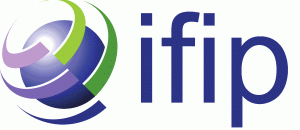This year we gave two awards to paper authors based on the reviewers’ evaluation:
Best paper:
Mutation-Based Test Generation for PLC Embedded Software using Model Checking
Eduard Paul Enoiu, Daniel Sundmark, Adnan Causevic, Robert Feldt and Paul Pettersson
Best short paper:
Distribution Visualization for User Behavior Analysis on LTE Network
Masaki Suzuki, Quentin Plessis, Takeshi Kitahara and Masato Tsuru
The schedule of ICTSS is now online! You may also download the schedule as PDF.
We are happy to announce our keynote speakers Gordon Fraser, Arnaud Gotlieb and Jeff Offutt. More information you find here!
Registration is now open. The registration information including a link to the registration page can be accessed here!
The copyright form for accepted full and short papers is available here!
The International Conference on Testing Software and Systems (ICTSS) addresses the conceptual, theoretic and practical problems of testing software systems, including communication protocols, services, distributed platforms, middleware, embedded- and cyber-physical-systems and security infrastructures.
ICTSS is the successor of previous (joint) conferences TESTCOM and FATES and aims to be a forum for researchers, developers, testers and users to review, discuss and learn about new approaches, concepts, theories, methodologies, tools and experiences in the field of testing of communicating systems and software.
For further information about ICTSS including how to apply for hosting future events have a look at https://sites.google.com/site/ictssmain/home.
The 28th edition of the International Conference on Testing Software and Systems will be carried out October 17-19, 2016 in Graz, Austria.
The Call for Papers is now available.
Topics of interest
The topics of interest include but are not limited to:
- Aspects of Testing: test derivation, test selection, test coverage, test implementation and execution, test result analysis, test oracles, test management, monitoring and runtime verification, test frameworks
- Model-based Testing: Formal models and modeling languages such as automata, state machines, process algebra, logics, UML, HOL, Markov-chains, test generation from models, model coverage
- Combinatorial Testing: From algorithms for generating combinatorial tests to its use in industry.
- Combination of Techniques: Techniques that demonstrate how to systematically combine testing and formal (model-based) verification and analysis to improve quality and reduce effort
- Quality Aspects: Functional, interoperability, performance, conformance, security, reliability, robustness, etc.
- Application Areas: Communicating systems such as protocols, middleware, networks, web services, wireless applications, control systems, business information systems, embedded and real-time software
- Combinations of different testing techniques for the automated generation of test data
- Tools and Methods: Automated support of any of the testing activities, rigid testing processes, testing driven development, sound metrics and measurements
- Case studies and industrial applications involving qualified empirical evaluations
- Fault localization and repair ideally in combination with testing
Supported by


